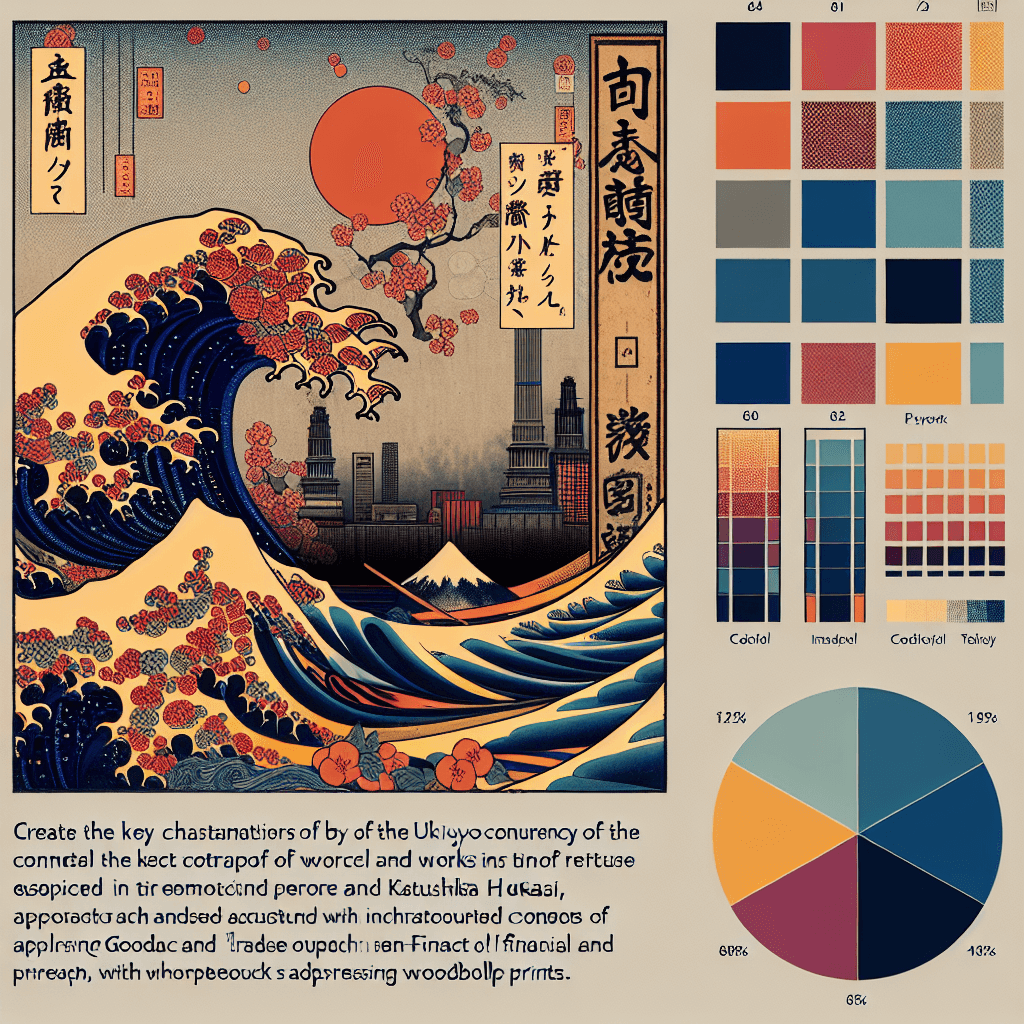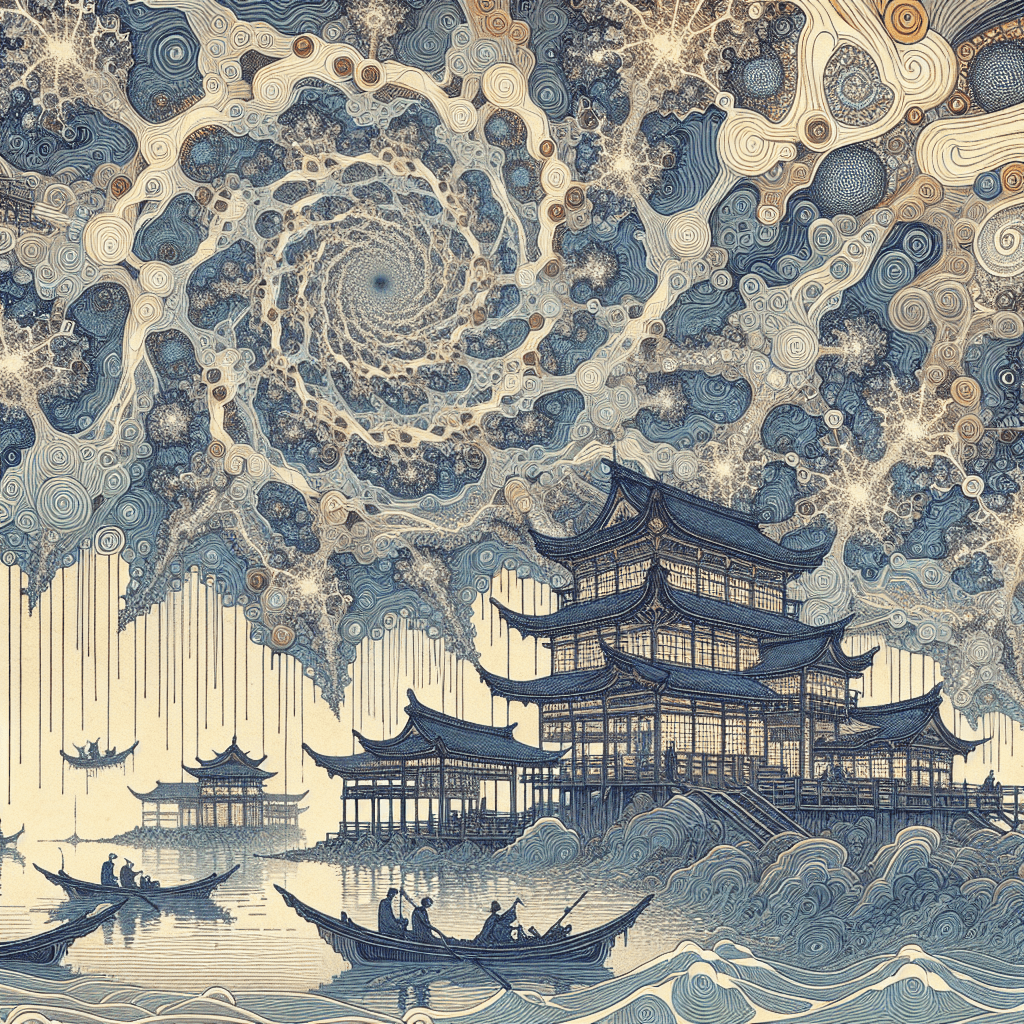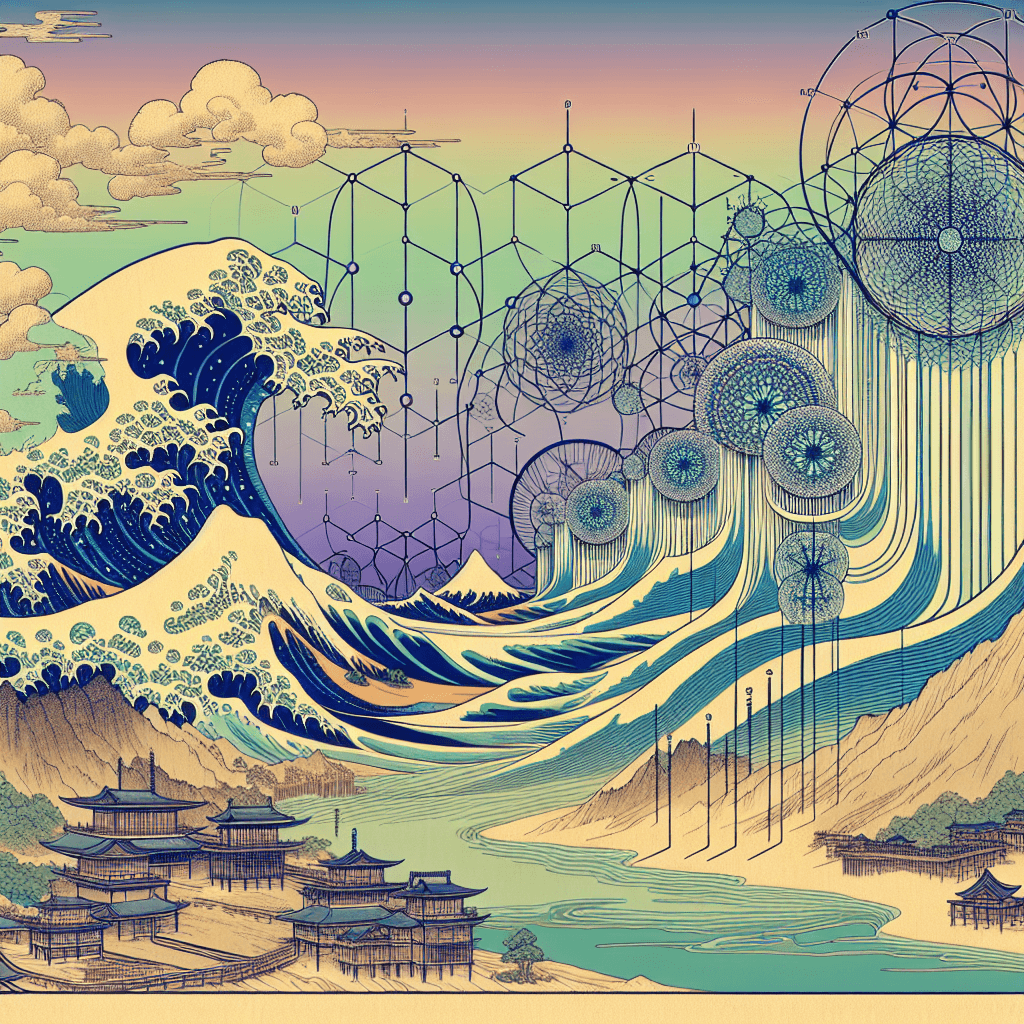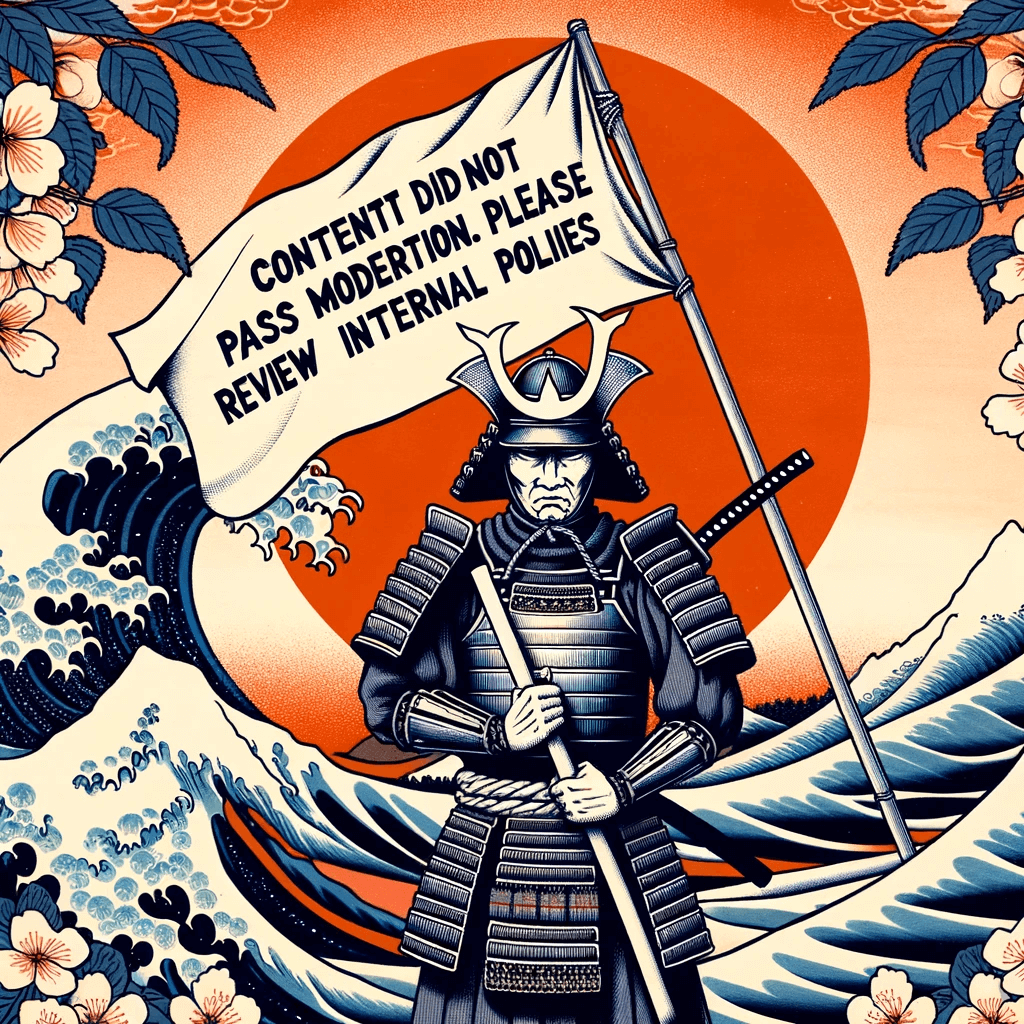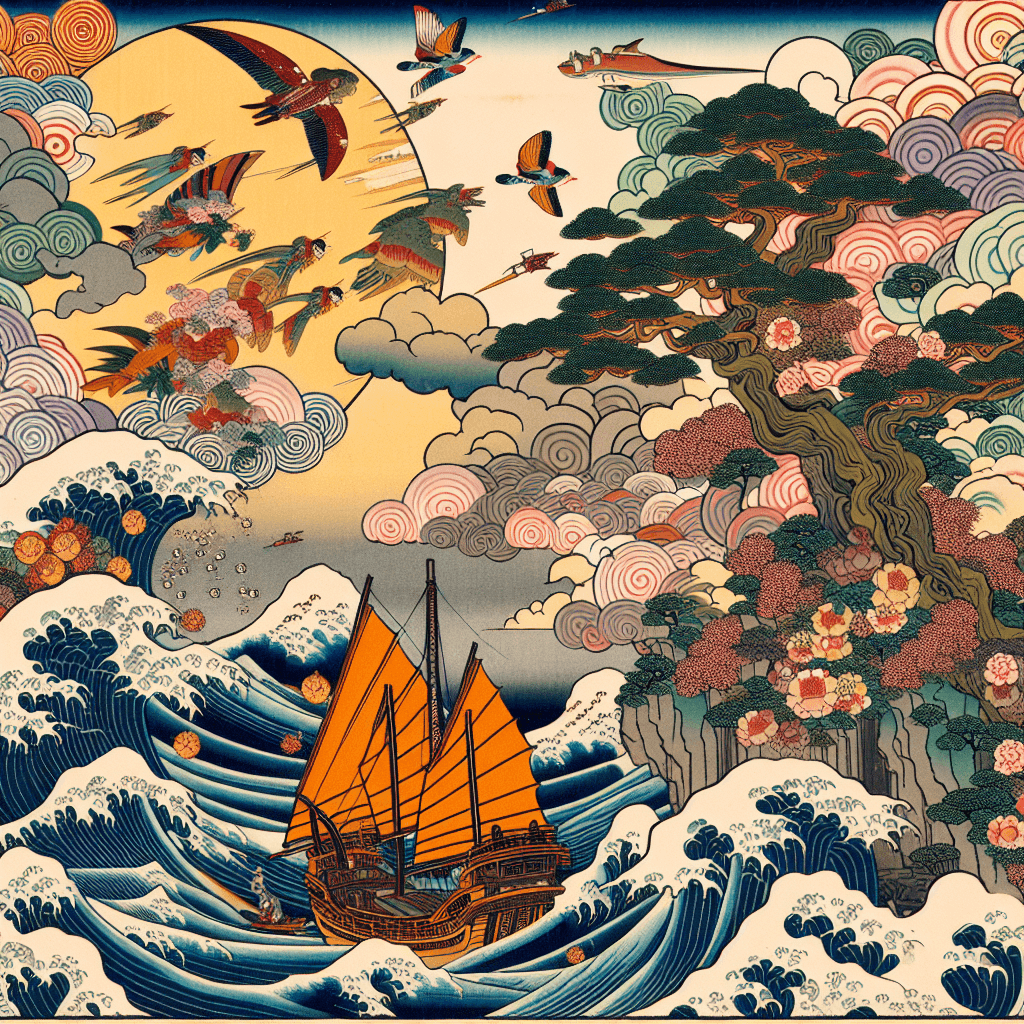Chi: The Element of Earth in Japanese Culture
syndu | May 15, 2024, 10:38 p.m.
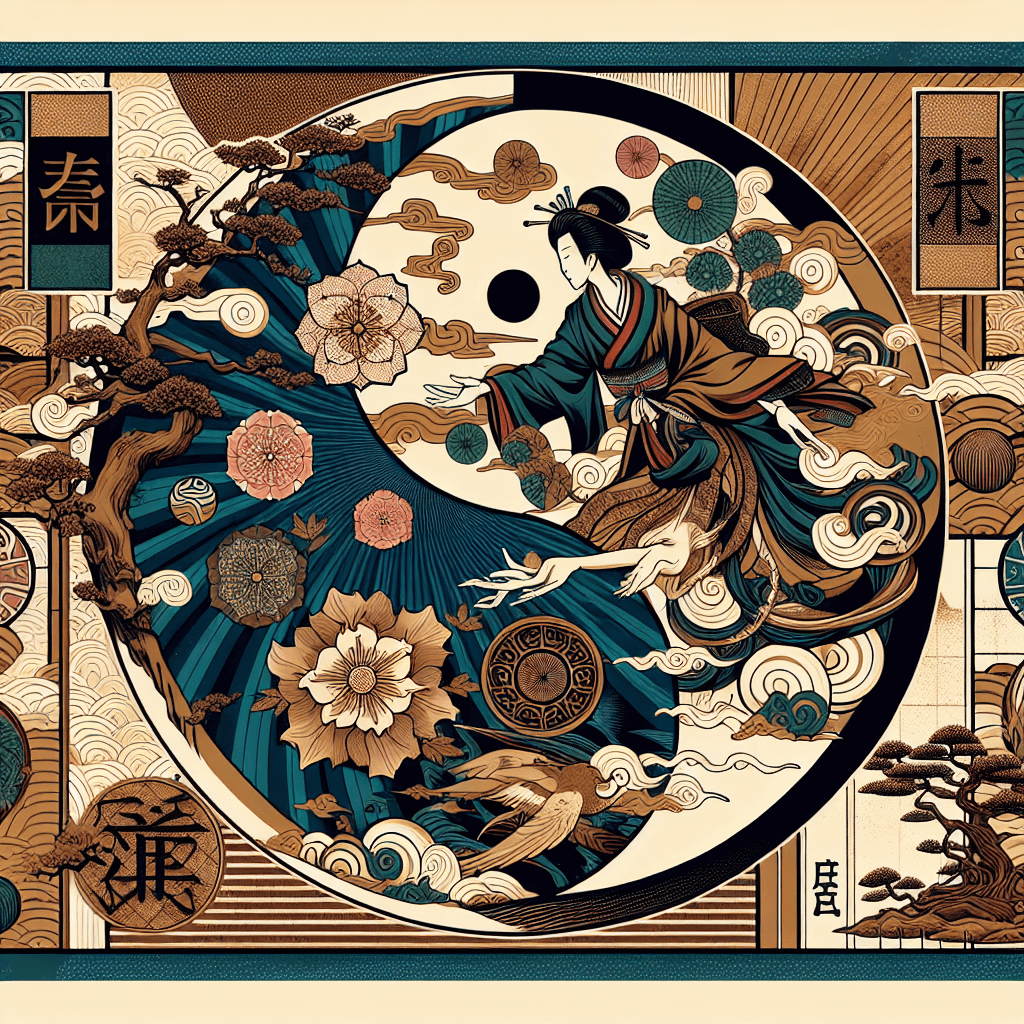
Chi: The Element of Earth in Japanese Culture
The element of Earth, known as Chi (sometimes spelled "Chi" or "Tsuchi"), is a fundamental component of the Japanese philosophical system of Godai, which translates to "Five Great." Chi represents solidity, stability, and nourishment, and is considered the foundation upon which all things are built. In this exploration, we delve into the characteristics of Chi and its profound representation in Japanese arts, traditions, and architecture.
Chi in Japanese Arts
In the realm of Japanese arts, Chi is often depicted through materials and techniques that emphasize the tactile and enduring qualities of the Earth. For example, in pottery, the use of clay directly connects the art form to the Earth, with the potter's wheel and kiln-firing process symbolizing the transformation of raw earth into functional and aesthetic objects. The resulting ceramics, from tea bowls to decorative vases, are not only utilitarian but also carry the weight and warmth of the Earth element.
Similarly, in traditional Japanese painting, artists use mineral pigments derived from natural earth and stones to create rich, textured works that convey a sense of permanence and connection to the natural world. The use of gold leaf in screen paintings and folding screens further exemplifies the Earth element's association with wealth, prosperity, and the material realm.
Chi in Japanese Traditions
Chi's influence extends to various Japanese traditions, where it is celebrated and respected for its life-sustaining properties. In agriculture, the reverence for Chi is evident in the careful cultivation of rice paddies and the celebration of harvest festivals, which honor the Earth's bounty. The tradition of Hanami, or cherry blossom viewing, is another example where people gather under the blooming trees to appreciate the fleeting beauty of nature, grounded in the Earth's cycles.
In spiritual practices, Chi is often symbolized by mountains, which are considered sacred spaces and the abode of kami (deities). The act of mountain worship, or "Sangaku Shinko," involves pilgrimages to these holy sites, reflecting the belief in the Earth's divine nature.
Chi in Japanese Architecture
Japanese architecture demonstrates a profound respect for Chi through its harmonious integration with the natural landscape. Traditional structures, such as the Minka houses, are built using natural materials like wood, straw, and paper, which are believed to maintain a close relationship with the Earth. The architectural concept of "Shakkei," or borrowed scenery, involves incorporating the surrounding environment into the design, creating a seamless blend between the building and the Earth.
In contemporary architecture, the principles of Chi are manifested in the use of sustainable and eco-friendly materials, as well as designs that promote environmental harmony. Architects like Tadao Ando are known for their use of concrete, which, despite being a modern material, is used in ways that evoke the solidity and grounding presence of the Earth.
Conclusion: The Enduring Presence of Chi
Chi, the Earth element, is a pervasive and enduring presence in Japanese culture, arts, and architecture. It represents the physical world we inhabit and the foundation upon which human creativity and tradition stand. By exploring the various manifestations of Chi, we gain a deeper appreciation for the Earth's role in shaping Japanese identity and the cultural expressions that continue to honor this elemental force.
As we reflect on the significance of Chi, we are reminded of the importance of staying grounded in our values and practices, nurturing our environment, and building upon a stable foundation for future generations. Chi's legacy is a testament to the enduring connection between humanity and the Earth, inviting us to cultivate a harmonious and sustainable existence.
